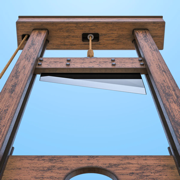|
feedmyleg posted:What are your opinions on housecats who just chill in sunbeams all day
|
|
|
|

|
| # ? Jun 6, 2024 22:56 |
|
Tiny Timbs posted:I figure they're plotting It takes a lot of behind the scenes work to maintain a life of luxury, there's bathing, and napping, and chittering at birds, and encouraging pets but only when you want pets, there's scratching, there's playing, there's Edit: oh god I just invented the cat bourgeoisie.
|
|
|
|
Kwyndig posted:Didn't Covid travel restrictions settle that once and for all that while it would be good the effect is marginal. No, because while people drove less for errands, they made up for it by sending a small army of delivery drivers to do a ton of driving on their behalf, and they still did plenty of driving for pleasure. Stexils posted:i dont think most people do, actually. for example you could dramatically cut emissions by implementing UBI so fewer people needed to commute for work. most people do not own private jets and yachts or deeply care that their local power plant uses coal and natural gas rather than wind, solar or nuclear, or that products they buy come in single use plastic. in fact the only area i see necessary for addressing climate change that would negatively impact how most people like to live is that people need to eat less meat. I think you're probably overestimating the impact of that? Most of the people who can stop working without really impacting anyone's lives are already just working from home. The people who still go to work now are mostly (yeah there's some office workers whose CEOs just hate remote work, but let's ignore them) doing actual physical things, such as producing physical goods or providing physical services. And while I think it would be nice if there didn't have to be as many people doing those things, reducing the number of people making things and performing services would increase the prices of those goods and services while reducing their availability. That requires Americans to accept having less stuff or paying more for that stuff. And looking at how America has handled pandemic shortages and the subsequent inflation, I'm not holding out high hopes for that. Outside of the tech bubble, most work that humans do is useful to somebody. Basically every single thing we possess was made by workers and then transported from the factories to our cities by workers. Our homes were built by workers, our food is produced by workers. Of course, there's also the fact that UBI proposals typically do not provide enough money for people to actually be able to not work. They might be able to work fewer hours under UBI, but they'd still have to work. Stexils posted:true. its about as strong and unevidenced as statement as 'sustainability means everyone needs to accept a lower standard of living'. For the most part, we don't burn carbon just for the hell of it. We burn carbon because it makes our lives easier or more enjoyable in some way, enough to be worth the direct monetary cost of the fuel we're using.
|
|
|
|
cat botherer posted:Their soft kitty bellies must be rubbed. You fool, that's a trap and you've fallen right into it
|
|
|
|
socialsecurity posted:There is so much to see and do in this world I just don't understand the mindset of needing a 9-5 job or whatever to define your life. If you need the structure or whatever than find a place to volunteer, there's always someone needing help. I dunno in a hypothetical sci-fi post scarcity world I would still do the thing I do for a career. I find drug discovery and development to be an extremely intellectually rewarding task. The fact that I work for a company that will gouge the prices is alienating but I feel extremely connected to the labor I do in general. I think professions like mine can be the most pernicious in making one so attached to the concept of meaning through your job, when the labor itself is actually rewarding and beneficial to humanity. The formatting of it as a job and its place within capitalism is where the rot creeps in. I would however probably only do it 20 hours a week instead to make more time for music. Three day work weeks don't logistically make sense for a lot of bench science, lots of overnight waits involved.
|
|
|
|
I'm not trying to shame or judge or tell anybody what to do, but goddam going from sleeping to lounging to sleeping is some "here for a good time not a long time" sounding life. If that's your good time, anyway. Raising your heart rate by running or loving, building muscle by lifting or carrying, they release all sorts of beneficial natural chemicals and make you stronger and healthier. That's the kind of "work" I mean. Running up a hill or pushing poo poo around in a whebarrow may be a drag when you have to do it (in order to survive through money and bills, usually otherwise removed from the effects and benefits of your labor). If you were doing it to feed you and your family (including the ones who won't get off the couch) it may not be as soul crushing, it's intuitively for you and yours. I mean look at kids, crazy little bastards LOVE running up hills and pushing wheelbarrows! Well, until you start putting a tablet in their hands before they even speak.
|
|
|
|
The problem isn't with actual labor but with the obligation when money is involved. I garden for fun but if I had to garden to survive than it would be more serious and there would be less enjoyment. I would feel obligated to do a good job and to wake up every day if someone was paying me. If I had to garden for my only food source, I probably wouldn't enjoy it as much either because I would be obligated to do it to survive. Sometimes sitting around and doing nothing is pretty relaxing though but if you are used to being busy it feels weird.
|
|
|
|
That is the whole loving point. You can make the choice to do what you want vs working for some lovely assholes pushing widgets around that don't actually do anything, so a company can make imaginary numbers go from point a to point b. You can find things to occupy your time, maybe a hobby, reading, games, movies whatever? You can start and tend a garden, start lifting weights, plenty of things that can be considered work. If you can't imagine yourself filling the time without a 9 to 5 you lack imagination and have been broken by capitalism.
|
|
|
|
It's a pretty hard transition if you are used to having your time occupied by other obligations. Also, people have been broken by capitalism and the general culture of needing to always work. Look at "side-hustles" and other stuff like that. A person's hobbies have no value unless they are done for money for a lot of people. Or the real goal of any hobby is to transition it to a money-making endeavor. I would argue a life of casual gardening, lifting weights, reading and playing games isn't one filled with work even though some of those activities are physical. Sounds like an excellent life of leisure to me. I don't really agree with it, but work is a centerpiece of an adult's life so it's hard to imagine a life without it. When I meet someone, they ask my name and what I do for a living. I would get weird looks when I wasn't working and said that I was unemployed. It would be a huge societal shift to free up all that time and a lot of people would be lost without an obligation of work.
|
|
|
|
Main Paineframe posted:I think you're probably overestimating the impact of that? Most of the people who can stop working without really impacting anyone's lives are already just working from home. The people who still go to work now are mostly (yeah there's some office workers whose CEOs just hate remote work, but let's ignore them) doing actual physical things, such as producing physical goods or providing physical services. What's it like still living in 2021? Corporations have been at war to claw back WFH progress for a couple years now even for jobs that can easily be fully remote. It's not 2019 levels yet but that's the obvious goal for most corporations
|
|
|
|
gurragadon posted:It's a pretty hard transition if you are used to having your time occupied by other obligations. Also, people have been broken by capitalism and the general culture of needing to always work. Look at "side-hustles" and other stuff like that. A person's hobbies have no value unless they are done for money for a lot of people. Or the real goal of any hobby is to transition it to a money-making endeavor. Had a comfy WFH job I left about 8 months ago doing tech for a big soulless bank and it was a wild transition going from 60-70 hours weeks to doing… nothing. I hadn’t realized how stresse and conditioned I was and how awful my anxiety had gotten from my job until I was no longer in the situation. I spent the first few months getting anxiety every time my phone had a notification even though it was no longer terrible things I hated coming through. After a while I started poking at hobbies I hadn’t touched in years. Spent a lot of the time lifting, hiking, gardening, and reconnecting with friends and family that I had mostly ignored for the past 7 years due to not wanting any social contact after dealing with assholes all day. After about 5 months I started looking at jobs again and realized the last thing I ever wanted to do again was work for someone else, so I decided to ramp up our side hustle of reselling things. Cut to today and I’m Making significantly less than I was before but it’s enough to survive, and I am probably working harder than I EVER did in the corporate world, but there is no stress and making my own hours is amazing. Plus I get a little dark glee out of subverting capitalism by taking things rich people throw away and selling them to slightly less rich people. I can definitely see how people get conditioned to the 9-5 lifestyle but to anyone who ever has a chance to escape it I say try it… money is useless if you’re too stressed to enjoy anything. I had no idea wha it was costing me until it was finally gone, and I actually feel like me again.
|
|
|
|
I'm one of those (at this point relatively few) people who never really left quarantine. Now when I say that, I mean I never went back to an office. We got told March 15th, Sunday, not to come in because the lockdown had been announced and we'd figure out things from there. If you left your laptop at your desk or any other important stuff in your locker, you could sign up for a 10 minute time slot where they'd let you run in and grab it so no more than like 10 people were in the place at one time. I didn't need anything and my locker was just full of random junk, so I didn't. I didn't set foot in an office till a year later when I quit and moved and needed to clean things out. And then my new job was fully remote, so now, almost 4 years later, I've never set foot back in an office outside of singular "we need you here for this big demo/open house" style things. It's honestly super weird because I never got that mental "the pandemic is 'over' " inflection point. I've been at home for 4 years (Though I don't quarantine, I go out and do stuff, but yeah most of my time is just being at home). Personally, I love it. With what my job is I don't need to be sitting around and grinding on work for 8 hours a day, or hell, even an hour all told on most days. Sure, there's crunch times, but 99% of the time I'm on top things enough that I'm just whittling the time away playing games, watching videos, reading books, working out, cooking, doing chores, just whatever the gently caress I want. It's a tech job and if I were a little more reckless I could totally grab at least one more job to do at the same time during the day without basically any overlap. When I leave this job I might gently caress around with double employment for a little while to see how well that shakes out, then just quit as planned if it doesn't.
|
|
|
|
feedmyleg posted:What are your opinions on housecats who just chill in sunbeams all day I would not want to use them for solar panels, the conversion is very inefficient  I mean, how am i supposed to charge my iPhone with "love"? 
|
|
|
|
Stexils posted:i dont think most people do, actually. for example you could dramatically cut emissions by implementing UBI so fewer people needed to commute for work. most people do not own private jets and yachts or deeply care that their local power plant uses coal and natural gas rather than wind, solar or nuclear, or that products they buy come in single use plastic. in fact the only area i see necessary for addressing climate change that would negatively impact how most people like to live is that people need to eat less meat. I think this pretty much perfectly illustrates the point from one of the posts that kicked this off: His Divine Shadow posted:Assuming they'd ever happen, systemtic changes would still impact peoples lifestyles though. I think that's important to realize because sometimes I get the impression that people do think if we did changes "systematically" from the top down, that their lives would be unaltered, as opposed to them doing individual changes on their own. I agree with His Divine Shadow that people (as you're doing in your post) often wield "systemic problems need systemic solutions" as a sort-of magical incantation against the idea that their lifestyle is a product of that system. Like, Amazon probably directly burns more carbon in a day than any of the posters here have in their entire lives, but that's due in large part to our society's collective desire to have a retailer capable of overnighting warhammer models to your front door. Just to stick to your specific example, because anything else is way outside the scope of a single forum post: I think you're right that people don't directly care how their power is generated (to an extent), or whether their purchases come in plastic clamshells. They are, however, incredibly price sensitive and reticent to make long-term lifestyle changes for a collective good as evidenced by *gestures vaguely at everything* People probably wouldn't care if you swapped their natural gas plant for a nuclear plant, but they absolutely would notice the increase on their electric bill as they shoulder the financing costs of both the (soon-to-be-shuttered) natural gas plant and the construction costs of their new nuclear plant. They absolutely will take notice of policies designed to encourage urbanization and densification, because those planning decisions will undoubtedly create winners and losers and the losers aren't going to be very happy as the value of their biggest asset (their home) begins to plummet. Building truly sustainable societies is a difficult problem, with plenty of political landmines in the way and massive changes that will absolutely need to be made. It's not going to be solved by drone striking some yachts and instituting meatless Mondays.
|
|
|
|
Boris Galerkin posted:I don’t even know what I’d do with 5 days off every week to be honest. Not in a “I live to work and so I must work” sense but in a “I’d be bored out of my loving mind” sense. Man, it hurts when I hear people say this. I would read, write, draw paint, catch up on my streaming queue, organize and paint my house, sit on the beach, make it to a dentist, thrift shop... so many things I write down and never EVER get to. I've been thinking about this and wasn't the promise of tech to free up more of our time, simplify our lives and make us less busy? I argue that it's made busier. Not only are there more CONSTANT messages, phone calls, emails and notifications every single day, but people are also more impatient and in much more of a hurry. I wonder sometimes if you added up all the texts, e-mails (from several accounts), robocalls, real calls, notifications and group chats, etc what the number of those might be for an average average person. There's hardly a minute that goes by in our lives where there's not a machine making a sound or a vibration that demands our immediate attention.
|
|
|
|
you can disable that op
|
|
|
|
I had that same epiphany during the pandemic. Being given money to live really set me free. I knew exactly how I was going to spend my free time and I did it, and if it weren't for restaurants and social spaces being closed, it would have been the best two years of my life.
|
|
|
|
Ruffian Price posted:you can disable that op In some cases contractually, no you can't.
|
|
|
|
Baronash posted:I think this pretty much perfectly illustrates the point from one of the posts that kicked this off: yeah, and its also not going to be solved by magically incanting 'everyone needs to accept their life is going to be worse' when the vast majority of the problems are being caused by a tiny minority. any transition is going to have winners and losers, but most people do not have to be the losers because they are not the ones personally invested in the wasteful industries and pollution causing the problems. thats a political choice, not a necessity. in your example handing the locals a fat bill to get rid of fossil fuel infrastructure is lovely policy. or take the US rooftop solar industry which is currently facing a potential crisis due to the fact that it proceeded through private middlemen writing scammy NO MONEY DOWN type contracts. thats not the result of a stingy population unwilling to sacrifice for a better future, thats the result of a dysfunctional system unable to plan and allocate resources efficiently. to the degree that people are disadvantaged due to necessary shifts (like your housing example) those kinds of plans can be implemented more gradually and smoothed over with money. suburbia wasnt built overnight and it doesnt need to be destroyed overnight either.
|
|
|
|
Stexils posted:yeah, and its also not going to be solved by magically incanting 'everyone needs to accept their life is going to be worse' when the vast majority of the problems are being caused by a tiny minority. any transition is going to have winners and losers, but most people do not have to be the losers because they are not the ones personally invested in the wasteful industries and pollution causing the problems. thats a political choice, not a necessity. I agree with you that our systems are dysfunctional. The (powerful and enduring) systems we build shape the masses. We kind of "won" and the treat well can't or at least hasn't run dry, but this is literally unsustainable and all signs point to it destroying itself and everything. True to life/history or not, its time to get poo poo together. -posted from my evil electric box So if you can't sell people minimalism, they do love to buy a fight. There is a fight to be had. Strength is sexy, passion is honesty. Its gratifying and healthy to be a part of this world even if it is a weird camping dad trope. People can't fail in expressing their will into the world, it's our world and our job. If democracy has failed, not willfully empowering its ravenous ghoul is our next democracy. The least we could do is try to live our truth, hell it's our responsibility if the next likely step is something worse. Where else will change come from? It doesn't even need to be a moral judgement, and those are harder to make with actual individual people than "groups". But you did say it was political, and a tiny minority are behind it. If only to justify my post.
|
|
|
|
E: nevermind
Boris Galerkin fucked around with this message at 07:30 on Feb 10, 2024 |
|
|
|
Stexils posted:yeah, and its also not going to be solved by magically incanting 'everyone needs to accept their life is going to be worse' when the vast majority of the problems are being caused by a tiny minority. any transition is going to have winners and losers, but most people do not have to be the losers because they are not the ones personally invested in the wasteful industries and pollution causing the problems. thats a political choice, not a necessity. Does suburbia even need to be destroyed? Can't it be redesigned instead. Feels like razing a lot of existing housing and infrastructure is wasteful. I do get that most posters here want nothing but high density urban living in the future, but a lot of people also don't want that. I don't know much about US suburbs but I get the impression they're just residential zoning that goes on forever and ever. So how about a compromise, rebuild existing suburbias into something like smaller villages with services, schools and such nearby and make them more pedestrian friendly (I understand a lot of places don't even have sidewalks), add a few medium density apartment buildings and commercial zones in along with the single houses. Mix things up and try and achieve something more organic, create a village where people can walk or bike to the store, without neccessarily being a 15 minute city. Maybe a 30 minute village? Sure it'd not be as efficient as putting everyone into Megacity One, but perfect is also the enemy of good. And if you could reduce the working week you'd get people who could spend more time in their 'villages' and less time commuting to work. It would also require government interference into the market, you'd have to support and prioritize local stores for instance over bigger malls. In Finland it used to be that small shops and rural shops had opening hour advantages over big stores, they could be open on days the big box stores had to be closed, that was repealed many years ago in favor of free opening hours because free market 24/7 I have to be able to buy everything right this loving instant or my life is worthless aaaaaaa
|
|
|
|
i grew up surrounded by a mindset of "hustle culture or death" like, a really really strong one. constant reaffirming of the fact that you gotta put your all into pushing against the tide, breaking your body and mind in whatever version of the rat race you can get, and fighting your way up into any financial stability you can grasp on to, or you're consenting to die to the harsh realities of a sink or swim world i will probably never be mentally free of it and i'll always need to be productively employed in order to feel good about myself at all, but i'm taking great pains to spare anyone in the next generation from that grind or die mindset
|
|
|
|
His Divine Shadow posted:Does suburbia even need to be destroyed? Can't it be redesigned instead. Feels like razing a lot of existing housing and infrastructure is wasteful. I do get that most posters here want nothing but high density urban living in the future, but a lot of people also don't want that. I don't know much about US suburbs but I get the impression they're just residential zoning that goes on forever and ever.  You could probably start by building tram lines through the biggest streets and upzoning everything to mixed commercial and residential hoping that it attracts more people and development to those places. But I don't know how that's going to happen when NIMBYs will whine about public transport binging "those people" and destroying the "character" etc etc You could probably start by building tram lines through the biggest streets and upzoning everything to mixed commercial and residential hoping that it attracts more people and development to those places. But I don't know how that's going to happen when NIMBYs will whine about public transport binging "those people" and destroying the "character" etc etc
|
|
|
|
Stexils posted:suburbia wasnt built overnight and it doesnt need to be destroyed overnight either. Actually, yeah, it kinda does. That's the thing about being near or past the Point of No Return with global temperature rise: there is literally no time left for incremental improvements. That was a thing that could have been started thirty years ago, and instead capital made sure we squandered that opportunity with every kind of disinformation and managed opposition initiatives possible. Soft transition is no longer in the cards, so now we're left increasingly few very lovely hard and sudden transition options instead. The system as it is is not sustainable, that much is obvious. The only question is if the transition will be voluntary and managed (because we mustered the political will to preemptively start making real systemic changes), or involuntary and unplanned (we let the climate disasters and their knock on effects roll over and collapse our system). Each year that capital successfully delays real planned transition makes it more likely the inevitable transition will be unplanned, which is the worst-case scenario since that involves a ton more death and suffering than the voluntary sacrifice options would have incurred. These problems weren't created overnight, that's true, but they unfortunately will be resolved overnight, one way or another. The tragedy is you can get some of the people to make some sacrifices some of the time, but you will never convince all of them to make all of the necessary sacrifices all of the time, and that's sadly exactly what is required at this point.
|
|
|
|
Tree Reformat posted:The only question is if the transition will be voluntary and managed (because we mustered the political will to preemptively start making real systemic changes), or involuntary and unplanned (we let the climate disasters and their knock on effects roll over and collapse our system). It's this one hth.
|
|
|
|
The Lone Badger posted:It's this one hth. Yeah, and the part I didn't mention is that one of those "knock on effects" is the increasing likelihood of nuclear war(s). "Collapse of the system" in an unplanned context means "the end of all human civilization as we know it, and quite possibly the end of humankind as a viable species"
|
|
|
|
mobby_6kl posted:Well you probably don't have to bulldoze everything in one go but the fundamental problem is that the super low density and lovely street layout makes it difficult to walk anywhere, maintain infrastructure, and provide usable public transport so essentially it has to be destroyed Trams are expensive and slow to set up and it might not work if there is no preexisting demand, which needs to be created by training people to take up public transport, which needs to be easy, flexible and affordable. At first I would go with, like, electric minibuses that collect passengers from the farther tentacles of the suburb, drop them at a bus hub where there's maybe a kiosk and cafe type thing and a larger bus collects them from there. That way it's easier to give up your car when you don't have to drive your kids to play ice hockey etc. When people start using it you can replace the main bus lines with trams or hyperloops or whatever is hip and cool in 2050.
|
|
|
|
No need to bulldoze all the suburbia. Electric bikes and scooters for the bulk of people (including those with only one or two kids), EVs for logistics and larger families and Grab Taxi for the infirm. Building flat takes up way less resources (but more space) then building up. Infill traffic lanes with more buildings so the place looks like Hanoi or Davao or other not built up but built close to each other city.
|
|
|
|
gurragadon posted:It's a pretty hard transition if you are used to having your time occupied by other obligations. Also, people have been broken by capitalism and the general culture of needing to always work. Look at "side-hustles" and other stuff like that. A person's hobbies have no value unless they are done for money for a lot of people. Or the real goal of any hobby is to transition it to a money-making endeavor. I do think this problem is a lot more pronounced in the US than elsewhere. I've lived and worked in the US and Europe. In the EU the 35 to 40 hour work weeks and the 6 to 8 weeks a year of PTO mean only a minority (I'd say 10%) of workers get broken to be fully alienated from everything but work. The legal minimum level of work/life balance allows you to have some interests outside of work. Theres also less of a cultural emphasis on work, theres no ridiculous "grindset" or very little side-hustle/double job mentality like in the US. But in the US it seems more like 90% who're broken mentally, in high performance white collar careers anyway. Like the posters in this thread who just can't imagine what they'd do with all those horrifying week days not spent in work. 5 whole days a week not working, the horror, what on earth could one do! Theres no possible way to fill that time. Thats such an objectively incredibly insane mindset when you think about it.
|
|
|
|
Blut posted:5 whole days a week not working, the horror, what on earth could one do! Theres no possible way to fill that time. Thats such an objectively incredibly insane mindset when you think about it. I responded to this but I deleted it, but now you are doing it again. You are being extremely condescending when you talk like this. If you go read my post where I I said what you quoted, you’ll see that I am posting about my own experiences and not making a more general statement. So let me make this more clear: prior to my current job I was unemployed for three years. During all of this time I have never truly struggled with financial hardships, which is why I was able to be unemployed for so long. I say once again, from personal experience as someone who has baked a poo poo load of bread and tended to a shitload of plants, I would personally be bored out of my loving mind having 5 days of the week off because I went through a period where I had 7 days a week off for three years. Boris Galerkin fucked around with this message at 13:52 on Feb 10, 2024 |
|
|
|
Boris Galerkin posted:I say once again, from personal experience as someone who has baked a poo poo load of bread and tended to a shitload of plants, I would personally be bored out of my loving mind having 5 days of the week off because I went through a period where I had 7 days a week off for three years. If all you do is bake and garden I'd be bored too. Relationships and community are important and you need to make a deliberate effort to seek it out and cultivate it. Volunteering, sports, hobby groups etc. Work gives you a social network simply by placing you with other people 40-60 hours a week. It's easy because you have to interact with these people and whether or not you become actual friends with some of them you still have human contact. Without work you have do it yourself and it takes a lot more mental effort and social skill than just being told to show up in a place at 9 o'clock Monday. I also think some people never develop the tools to do that. They work 40 years and retire and then have no idea how to go out and meet people because all their adult lives all their relationships started off by their work or school telling them to go sit in a room with other people who were also told to go there.
|
|
|
|
His Divine Shadow posted:Does suburbia even need to be destroyed? Can't it be redesigned instead. Feels like razing a lot of existing housing and infrastructure is wasteful. I do get that most posters here want nothing but high density urban living in the future, but a lot of people also don't want that. I don't know much about US suburbs but I get the impression they're just residential zoning that goes on forever and ever. It's quite difficult, because of how deeply the suburbs have been built around car culture. For example, Florida has a number of suburban neighborhoods where nearby water sources have been channeled so that each and every house in the neighborhood is a waterfront property. Good luck making places like these into walkable villages:    (this being Florida, pretty much everything that doesn't have houses or visible water is probably just swamp) While other states often don't really have this specific issue, there's also the fact that the neighborhood layouts fundamentally haven't been built to make these places usable - they've been built to pack as many McMansions as possible into a given space as cheaply as possible, especially in the suburbs around major urban areas. The road networks are twisted maxes of loops and cul-de-sacs, designed with minimal regard for efficiency since they only lead to houses and therefore don't need to have significant capacity. You can't just slap a bit of commercial into neighborhoods that were designed from the beginning to be car-centric suburbia - they're simply not built for the demands of commercial. Even if you knocked down a few McMansions and replaced them with hundred-unit apartment buildings, that influx of people would quickly overwhelm local infrastructure. The lack of sidewalks often isn't a major concern, because most of the streets are so low-traffic that people can just walk on the road. But that just goes to show how the streets, and the neighborhoods themselves, have been designed to be low-traffic to the point where it's surprisingly difficult to retrofit in some more density later. It's not too different from how it's surprisingly difficult to retrofit office buildings into apartment buildings - making an area livable is demanding enough that places not built to be livable can't easily be transformed into livable areas.
|
|
|
|
Don't reference Florida as a use-case anyway because we won't have it that much longer.
|
|
|
|
The Dave posted:Don't reference Florida as a use-case anyway because we won't have it that much longer.
|
|
|
|
For certain definitions of "good"
|
|
|
Main Paineframe posted:It's quite difficult, because of how deeply the suburbs have been built around car culture. For example, Florida has a number of suburban neighborhoods where nearby water sources have been channeled so that each and every house in the neighborhood is a waterfront property. Good luck making places like these into walkable villages: I wonder if you could make this work by adding bridges and bike paths, and then filling in basic necessities like schools and grocery stores (you might need to raze a few McMansions for this). Maybe add in some common spaces, like small parks and shops, that are designed for access by foot / bike. Heck, you could lean into the waterways and make most of these places accessible by small watercraft, too (think like jetski, kayak, or SUP — smaller than a motor boat). Then, longer term, you relax zoning, and let the bigger apartments and stuff come. You don't need to immediately densify everything, you just need to make them pleasant spaces to exist without a car.
|
|
|
|
|
so is FL or Boston worse in terms of direct spatial distance being like 1 foot, but driving distance being 1 light year?
|
|
|
|
VikingofRock posted:I wonder if you could make this work by adding bridges and bike paths The houses in the first pic have lots of boats so you'd need some big bridges and to convince the likely extremely corrupt and grifting HOA to spend money on said bridges instead of embezzle it. Even for the others, in those kinds of neighborhoods you will have high levels of NIMBYism when it comes to putting in pathways that might cause more people to walk by their homes (or require an easement and making the path through existing yards which would be fought tooth and nail). The real solution is to not build hellscape suburbs like those and to have them broken up with different zoning, in addition to not making the houses all "lakeside" property.
|
|
|
|

|
| # ? Jun 6, 2024 22:56 |
|
feedmyleg posted:What are your opinions on housecats who just chill in sunbeams all day They are Exterminators-In-Being, their simple presence deters pests. Additionally, they will produce percussive vibrations as a side effect when they are fulfilled, and or when the tummy gets rubs.
|
|
|


































